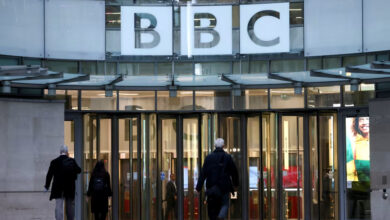A six-day strike by journalists of the Arabic service at the British Broadcasting Corporation (BBC) has entered its second consecutive day.
In a statement on Sunday, the journalists said the strike will last until their demands to improve "unfair working conditions" are fulfilled.
Journalists object to a managment plan which would increase their working days by 26 annually.
The impact of the unprecedented strike was clear on the content of the service, which has begun to be dominated by documentaries.
National Union of Journalists General Secretary Michelle Stanistreet said: “The current proposals for the Arabic service will result in increasing the number of anti-social and unsafe shift times. This will drastically disrupt people's lives and lead to dramatically increased levels of work-related stress and sickness."
“Journalists at the Arabic service are particularly concerned at the vagueness of duties and how management plans will leave staff vulnerable to exploitation and favoritism.”
“Management has chosen the least imaginative way to save money at the Arabic service and should reconsider their proposals,” added Stanistreet.
The statement also added that the BBC Arabic service administration refused the Egyptian Press Syndicate’s proposal of resorting to a neutral authority to resolve the dispute.
However, the journalists said they were ready to hold talks with the administration to reach a fair agreement.




